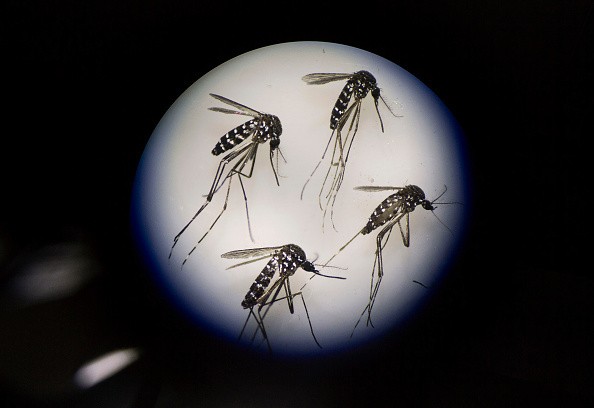A new mosquito repellent could protect the U.S. Military from harmful diseases carried by these pests.

Since military personnel are usually in the field, they are more vulnerable to insect bites, especially from mosquitoes.
These tiny flying insects can spread serious diseases and viruses; malaria, dengue, West Nile, and Zika virus.
Because of this, the University of Florida decided to develop a new portable mosquito repellent.
New Mosquito Repellent for US Military
According to SciTech Daily's latest report, the new portable mosquito repellant is funded by the Department of Defense Deployed Warfighter Protection (DWFP) program.

Also Read : Biometric Capture Gadgets Purchased on eBay Reportedly Contain Sensitive US Military Data
"Our device eliminates the need for applying topical repellents and for insecticides that are sprayed across an open area," said Nagarajan Rajagopal, a Ph.D. candidate, via U.F. News.
He added that it reduces contaminations of surrounding plants and bodies of water.
Aside from this, Rajagopal also claims that their new portable mosquito repellent doesn't affect bees and butterflies.
Aside from no skin contact, this repellent doesn't require electricity and heat to function.
U.S. Military Test a Success!
The portable mosquito repellent is a controlled-release passive device.
It is made up of a tube-shaped polypropylene plastic that holds two smaller tubes and cotton containing the repellent.
During a successful field test, the portable mosquito repellent created a protective space that prevented mosquitos for four weeks.
"We call our device passive because you don't need to do anything to activate it," said Rajagopal.
As of press time, the University of Florida plans to build more units using a 3D printer.
But, before that, Rajapogal and the involved experts filed for a patent for their device.
Since the U.S. government wants to commercialize its product, it can expect assistance from military officials.
You can click this link to learn more about this new portable mosquito repellent.
Other stories we recently wrote about insects:
In 2019, experts claimed that large parts of Europe were at risk of serious insect diseases.
In 2021, researchers discovered a new malaria mosquito in Africa.
For more news updates about mosquitoes and other insects, keep your tabs open here at TechTimes.
Related Article : Mosquitos with Dengue Could be More Vulnerable to Rising Temperatures According to Glass Vial Experiment





